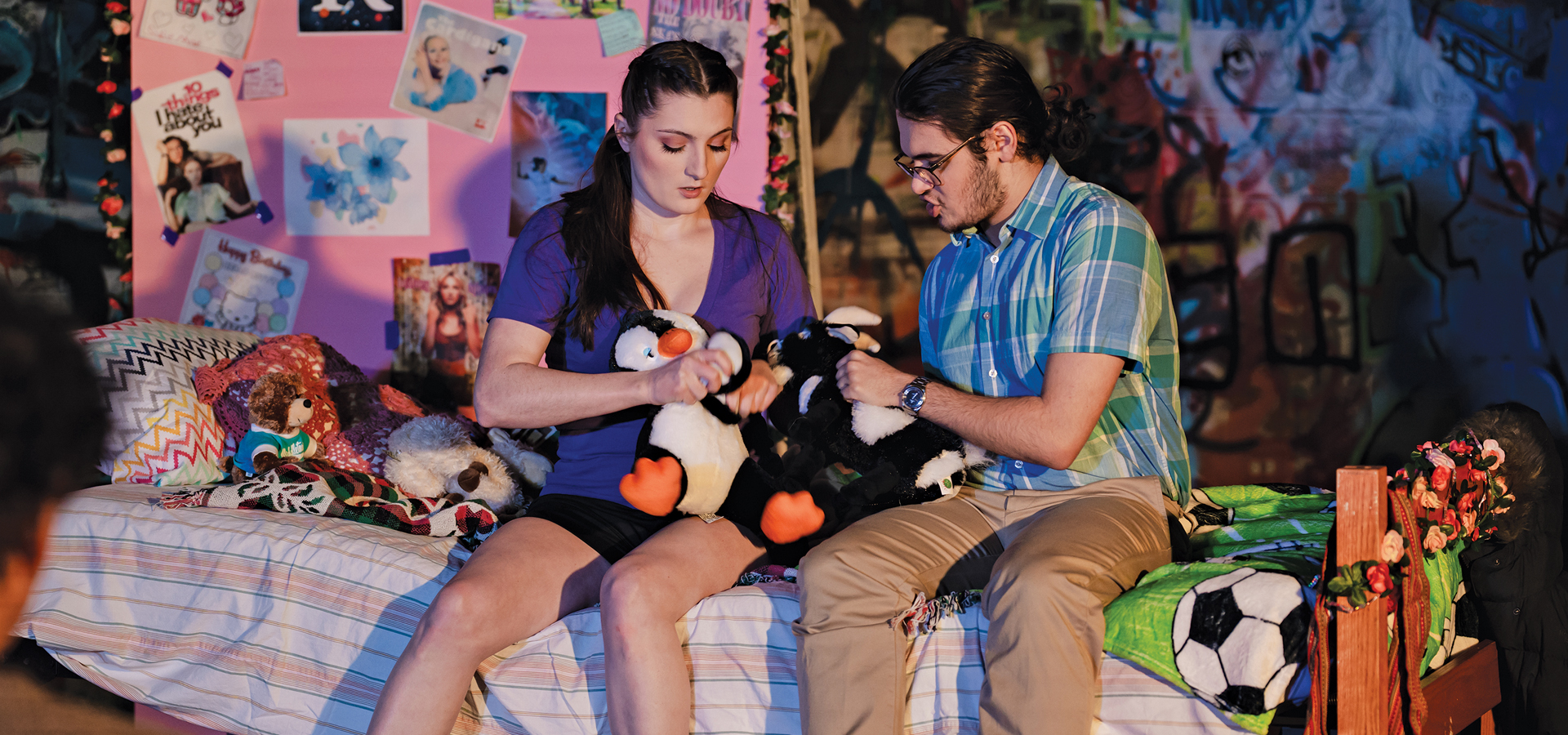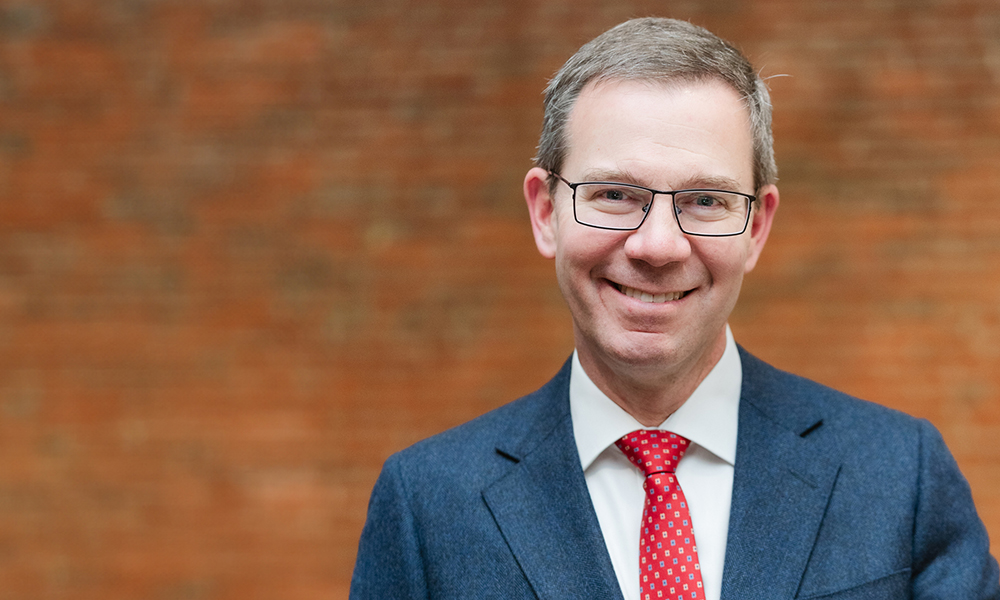Spike Tape Takes the Spotlight

When Second Stage, Wesleyan’s leading student theater organization since 1973, dissolved during the COVID-19 pandemic, four sophomores swooped in with an idea that quickly revived student-led theater on campus.
Their concept, a club called Spike Tape, started out as a small showcase featuring student renditions of Broadway tunes. Two years and 25 full-scale theater productions later, founders Charlotte George ’24, Kyra Kushner ’24, Drew Weddig ’24, and Amanda Morris ’24, have seen the club grow to include 220 students who spend each semester exploring theater in a fun, supportive environment that prioritizes broadening access and providing resources for participants of all experience levels.
According to George, Spike Tape’s president, participating in college theater typically requires previous experience, which can make getting involved feel intimidating. She wanted anyone interested in theater to feel comfortable joining.
“Theater should be fun and collaborative, not competitive and toxic,” George said.
This has proven to be Spike Tape’s guiding principle since replacing Second Stage, whose membership waned with the health concerns and social distancing restrictions of the COVID-19 pandemic. Second Stage’s final production, Waiting for Godot, went up in spring 2021 outdoors in the West College Courtyard with actors and audience members wearing masks.
Former Second Stage board member Adam Kielbasa ’22 recalls witnessing the end of the long-standing organization. “People joined Second Stage because they wanted to make theater,” Kielbasa said. “When we couldn’t do that anymore, it was tough to keep that momentum.”
After Waiting for Godot concluded, little theater happened on campus for over a semester, leaving students like George feeling its absence. In spring 2022, she and her friends formed Spike Tape, and by the end of the semester they had produced three shows, including one original student play. More students got involved with each production.
“It was a mess of a semester, only because we had no idea what we were doing, but we were figuring it out as we went,” Spike Tape Vice President Kushner said. “It was really beautiful because everyone was coming together and enjoying putting up student theater. We were all just figuring it out together.”
As the group expanded to create more theater, they also expanded their community-building efforts. From impromptu post-meeting dinners to movie nights, art events, formal dances, and more, Spike Tape members frequently bond beyond the rehearsal room. “It’s so amazing to be surrounded by a group of incredibly passionate and creative people who are constantly supporting each other and wanting to create theater,” George said.
Drawing inspiration from Second Stage but seeking to forge a different path, Spike Tape created an open board. Where Second Stage previously had an application-based board with closed meetings, Spike Tape holds weekly Sunday meetings where any student can attend and vote on policy such as show selection, resource allocation, structural development, and more.
“Just opening things to people doesn’t necessarily make things accessible,” George acknowledged, citing Spike Tape’s efforts to develop how-to manuals for participants with less theater experience. The organization also holds workshops to encourage first-time directors and actors to get involved and offers technology trainings for people interested in joining backstage crews.
“The beauty of student theater is that we are all students,” said Aden Sheingold ’26, who joined Spike Tape his first semester on campus. “What we put into this is entirely our own passion, joy, creativity. We’re not getting class credit or getting paid. It’s just all because we love it and we want to see it succeed.”
Spike Tape also revived the Second Stage semesterly tradition of One Day Plays, a 24-hour theater festival in which students write and produce plays from scratch. “It feels like there’s a little bit of Second Stage’s legacy left, especially since it’s such a beloved tradition throughout Wesleyan,” said George.
The club continues to grow each semester, much to the surprised delight of its founders, all of whom graduated this spring, leaving Spike Tape in the hands of students like Sheingold who intend to keep it running for years to come.
“It’s scary because we’re letting go of something we care about,” Kushner said. “But I have this deep excitement to see what they’ll do without us.”
By Rachel Wachman ’24


